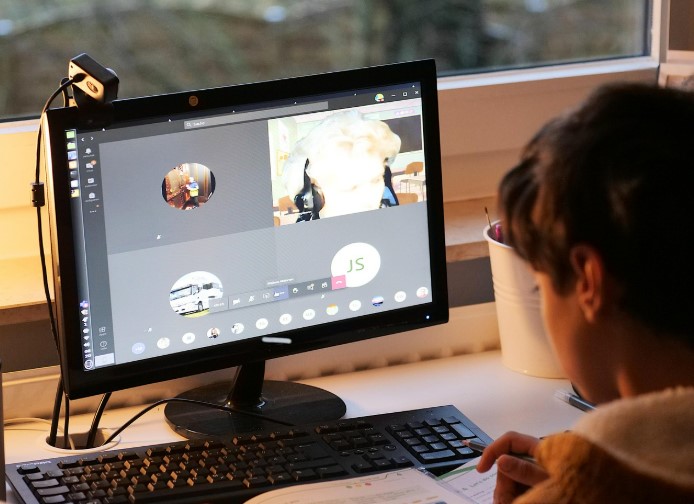The digital age has begun, and education is evolving at a pace that is faster than one can imagine. While the traditional form of classroom education remains the primary means of learning, many parents in the UK have also begun exploring online primary school options. Whether it is about flexible learning from home, the chance to personalise education, or safety, online education in primary classes is gaining popularity among parents and younger children.
But two questions stem from this: what exactly does an online primary school involve? And is it the right choice for younger children? We will address these questions and discuss online schooling for younger children in detail in this article.
What is Online Primary School?
It is a form of school where education takes place in an online setup. An online primary school offers a structured curriculum for children aged between 4 and 11 years. Here, students do not need to sit in physical classrooms; instead, they can log in from home. Teachers provide guided lessons via video, sharing interactive resources via email, and assigning digital lessons to students.
However, when things are online, people often assume that children are left to their own devices. Reputable schools, however, follow guidelines laid out by the UK Department for online education provider accreditation scheme to ensure high quality teaching. These schools include live teaching sessions, group activities, and regular interactive sessions so that children feel part of the classroom community. In this form of teaching, parents play a crucial role, as they must provide support and encourage their young learners to attend the online sessions.
Why Parents Are Choosing Such Schools
It has been observed that parents across the UK are increasingly opting for online learning for their younger children. Here are the reasons for such an inclination towards online schools.
- Flexibility: Online schooling offers parents greater flexibility. Families who travel frequently find that online schools are a perfect fit for their lifestyle. Live lessons are often recorded, and students can access them later as well.
- Personalised learning: In traditional classroom settings, a teacher must be attentive to 20 to 30 students simultaneously. However, in online learning, teachers can provide tailored attention. Therefore, a potential student can move ahead, while others can take the time to learn at their own pace. As per the research from the University of Dundee, the idea of online and blended learning can lead to improved academic outcomes.
- Safe environment: For some children, sitting with many students can be an overwhelming task, but in an online setup, they feel more comfortable, reducing stress and anxiety.
- Access to specialist teachers: Online schools often assign subject matter experts as teachers to teach a specific subject. This practice is not typically available in most traditional schools.
Online School Benefits for Children
Online schooling offers numerous benefits for children as well. Here are some major benefits of online primary schools for children.
- Flexible learning schedules: Children can learn at their own pace without feeling rushed. They can now understand each lesson at their own pace. Moreover, they can take breaks whenever needed.
- Early development of digital skills: Early exposure to online platforms, video communication, and digital collaboration helps children gain a better understanding of technology. Early exposure to technology will prepare students for a tech-driven future.
- Virtual social opportunities: Active participation in virtual clubs, group projects, and online assemblies fosters social interaction and collaboration with fellow students. Although things are remote, children often pick these things up greatly.
Potential Challenges of Online Schools
While there are numerous benefits to this type of schooling, several challenges also exist.
- Supervision is required: Younger children require parents throughout the online sessions to stay engaged in learning. Children often lose focus quickly; therefore, someone is needed with them all the time during online classes.
- Limited real-world socialisation: Although children gain a good experience of socialising virtually, they will not be able to learn real-world interaction skills, engage in playground activities, and form face-to-face friendships.
- Technology Dependence: For learning through online mediums, students need a reliable internet connection and access to a laptop or tablet; any technical issue may hamper the learning experience.
Is Online School Right for Your Family?
To understand if online primary school is good or not, parents can reflect on the following questions:
- Does your child perform better in a flexible setup? Students who are self-motivated or feel anxious in social settings often benefit from online learning to improve their academic performance.
- Can you provide the necessary support? If parents are available to guide and supervise their children during online sessions, then an online home learning environment can be beneficial for them.
- Are there any social activities available for children? If you can enrol children in social activities, then online learning is ideal for younger children.
- Does online school align with educational goals? If so, then it is perfectly fine to enrol your child in an online school.
Final Words
Education is not a one-size-fits-all concept, and with the growing trend of online learning, parents are now also getting choices. With the right support and proper guidance, students can reap the benefits from online schools.

